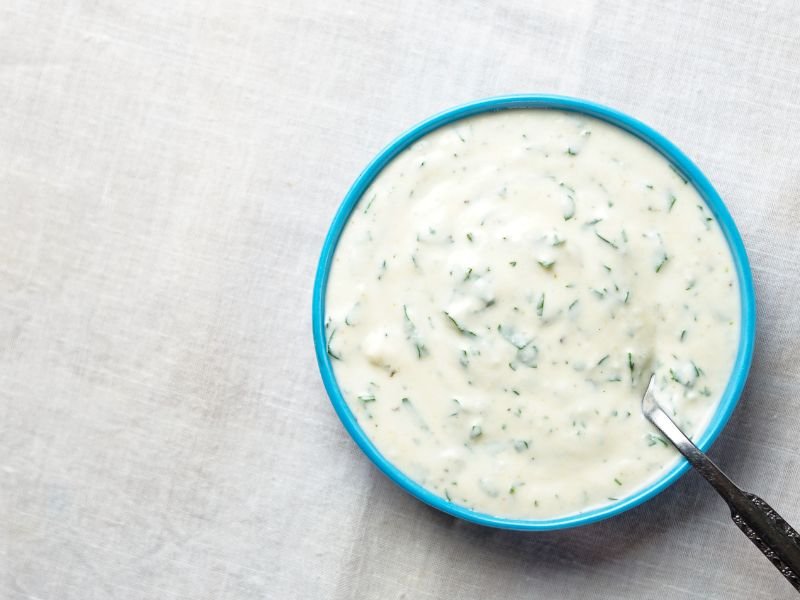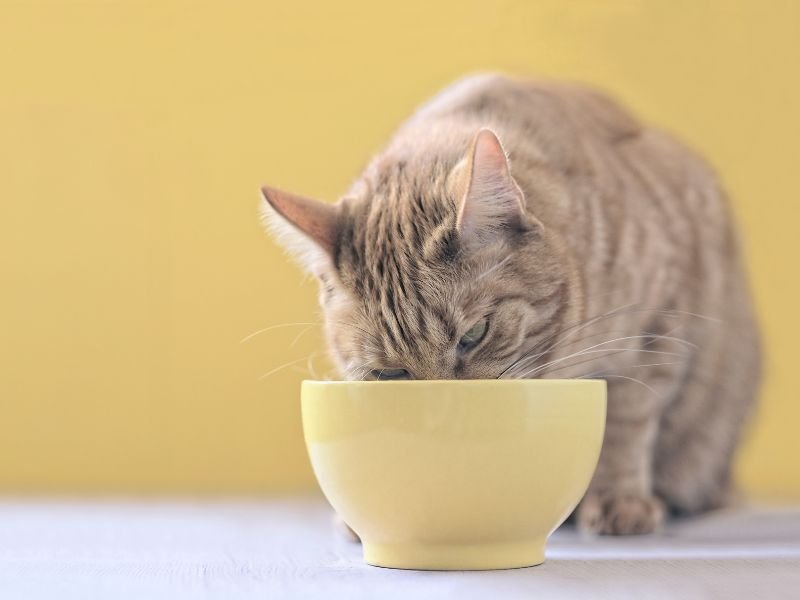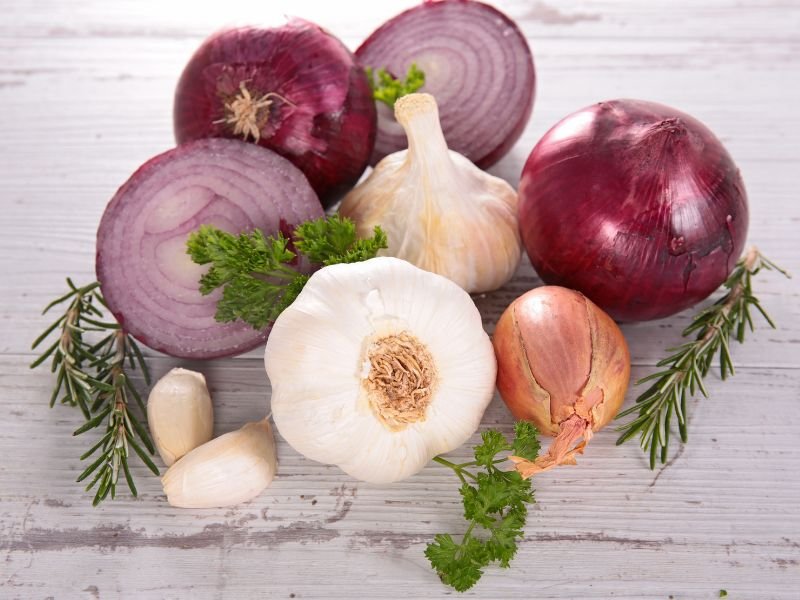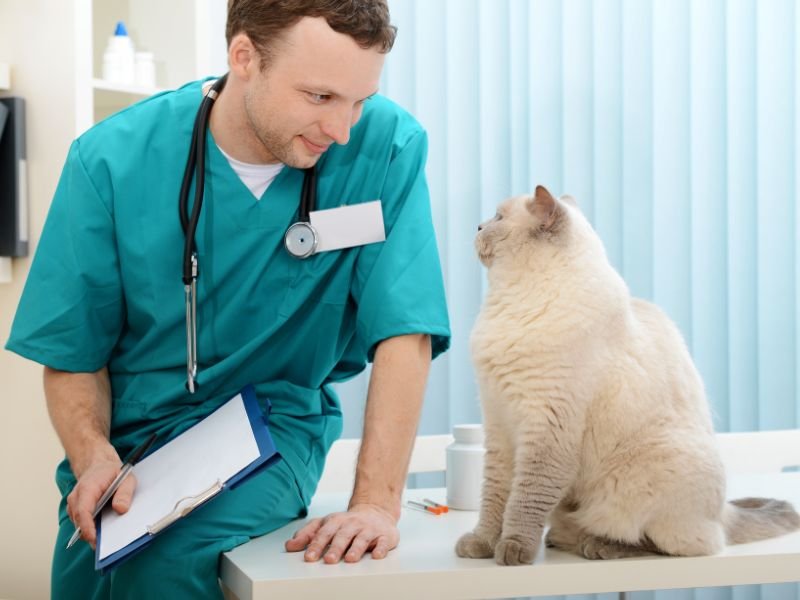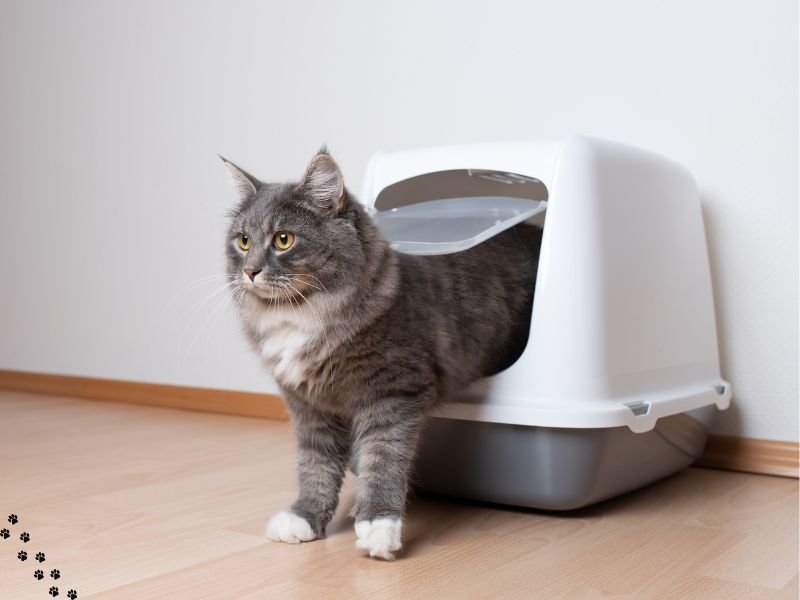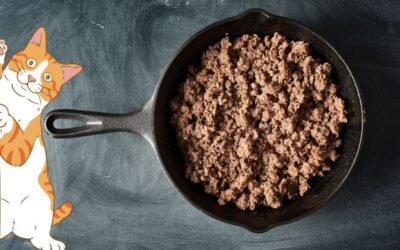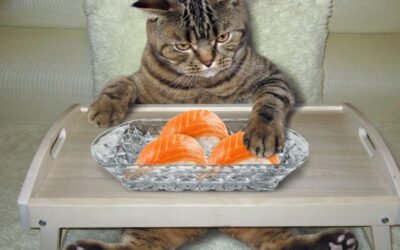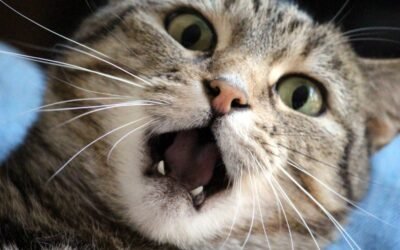Table of Contents
- Can Cats Eat Ranch Dressing?
- The Risks and Benefits of Feeding Ranch Dressing to Cats
- Understanding the Potential Health Consequences of Cats Consuming Ranch
- Alternatives to Ranch Dressing That Are Safe for Feline Diets
- How to Safely Introduce New Flavors to Your Cat’s Diet
- Unexpected Ingredients in Ranch Dressing That Could Harm Your Feline Friend
- Expert Advice: Veterinarians Weigh in on Can Cats Eat Ranch
- FAQs About Can Cats Eat Ranch
- Conclusion
Can Cats Eat Ranch Dressing?
As a responsible cat owner, it’s essential to be cautious about the foods we share with our feline friends.
When it comes to ranch dressing, it’s best to avoid giving it to cats altogether.
Cats are obligate carnivores, meaning their diet should primarily consist of animal protein.
Ranch dressing contains ingredients like garlic, onions, and herbs that can be harmful to cats and may lead to digestive issues or other health problems.
To keep your cat healthy and happy, stick to a diet specially formulated for its nutritional needs and avoid sharing human foods that could potentially be dangerous.
The Risks and Benefits of Feeding Ranch Dressing to Cats
When it comes to feeding your feline friend, it is important to be aware of the potential risks and benefits of including certain foods in their diet.
Ranch dressing, a popular condiment known for its creamy and tangy flavor, may seem like a harmless addition for cats.
However, it is essential to understand the potential consequences it may have on their health.
Risks
Cats are obligate carnivores, which means their bodies are designed to thrive on a diet primarily consisting of animal protein.
Ranch dressing, on the other hand, contains ingredients like garlic and onion powder, which can be toxic to cats when consumed in large amounts.
These ingredients can cause gastrointestinal issues, allergic reactions, or even damage to red blood cells.
It’s also important to note that ranch dressing is high in fat and sodium content.
While a small taste or occasional lick may not cause immediate harm, excessive consumption can lead to weight gain, obesity, and an increased risk of heart disease.
Moreover, the high sodium levels in ranch dressing can put a strain on a cat’s kidneys, potentially leading to kidney disease in the long run.
Benefits
While there are risks associated with feeding ranch dressing to cats, it is worth mentioning that it contains some nutrients that may provide minimal benefits.
For instance, ranch dressing often contains dairy products, which can be a good source of calcium.
However, it’s important to remember that cats have different nutritional requirements compared to humans, and their bodies have evolved to obtain calcium from other sources, such as meat or specialized cat foods.
In addition, some cats may simply enjoy the taste of ranch dressing, and a small amount provided as an occasional treat may serve as a source of mental stimulation and enrichment.
However, it is crucial to consider the risks and moderation when offering any human food to cats.
Overall, the potential risks outweigh the benefits of feeding ranch dressing to cats.
It is crucial to prioritize their specific nutritional needs and consult with a veterinarian before introducing any new ingredients into their diet.
In the following sections, we will delve deeper into the potential health consequences of cats consuming ranch dressing and explore safe alternatives for feline diets.
Understanding the Potential Health Consequences of Cats Consuming Ranch
Feeding ranch dressing to your beloved feline might seem harmless or even amusing, but it’s important to understand the potential health consequences before indulging in this whimsical idea.
Cats have unique dietary needs, and certain human foods can be harmful to their well-being. When it comes to ranch dressing, there are several factors to consider.
Fat Content
One of the primary concerns with feeding ranch dressing to cats is its high-fat content.
Ranch dressing typically contains a significant amount of fats, including saturated and trans fats.
While fats are an essential part of a balanced diet for humans, they can be problematic for cats.
Their metabolism is different from ours, and excessive fat consumption can lead to weight gain, gastrointestinal distress, or even pancreatitis, a potentially life-threatening condition.
High Sodium Levels
Another critical factor to consider is the high sodium levels in ranch dressing. Cats have a low tolerance for sodium, and excessive consumption can strain their kidneys and lead to dehydration.
Moreover, it may exacerbate pre-existing heart conditions or contribute to the development of hypertension.
It’s crucial to note that every cat is unique, and their tolerance to certain foods can vary.
While some cats may have more robust digestive systems and might not be adversely affected by small amounts of ranch dressing, it is safest to err on the side of caution and avoid feeding it to your feline companion altogether.
If you are looking to add flavor to your cat’s meals or provide them with a special treat, there are alternative options that won’t pose a risk to their health.
Consider offering small amounts of plain, cooked proteins like chicken or fish as a delicious and safe alternative.
Always be mindful of seasonings or additives in these foods, as certain herbs and spices can also be harmful to cats.
Remember, cats have specific dietary requirements to ensure their long-term health and well-being.
Consulting with a veterinarian about your cat’s diet and any potential introduction of new foods is always recommended.
Alternatives to Ranch Dressing That Are Safe for Feline Diets
Ranch dressing may not be the best choice when it comes to including cats in your mealtime, as it contains ingredients that can potentially harm their health.
However, there are several safe and feline-friendly alternatives that can add flavor to your cat’s meals without compromising their well-being.
Natural Yogurt
Yogurt can be a great alternative to ranch dressing for cats. Look for plain, unsweetened yogurt with live active cultures.
These cultures can help promote healthy digestion in felines. Remember to avoid any yogurts that contain artificial sweeteners or flavorings, as these can be harmful to cats.
Plain Cooked Chicken or Fish
Plain-cooked chicken or fish can be a wonderful addition to your cat’s diet. It provides essential proteins and nutrients while satisfying their taste buds.
Make sure to cook these meats without any seasonings or sauces that may contain harmful ingredients.
Avoid using any oils or frying methods as well, as excessive fats can lead to digestive issues in cats.
Pureed Baby Food
Certain brands of baby food can serve as a safe alternative to ranch dressing, as long as they are free from any potentially toxic ingredients.
Look for pureed meats or vegetables without added seasonings, flavors, or preservatives.
It’s always important to read the labels carefully and choose baby food that is suitable for cats.
Other Cat-Specific Treats
There are commercially available cat treats that have been specifically formulated with feline nutrition in mind.
These treats are designed to provide an optimal balance of nutrients and flavors that cats enjoy.
While they may not be as versatile as ranch dressing, they can still provide a tasty addition to your cat’s diet.
When introducing any new foods to your cat’s diet, it’s crucial to do so gradually. Start off by offering small amounts of the alternative to ranch dressing mixed in with your cat’s regular food.
This allows them to adjust to the new flavors and textures without upsetting their digestive system.
Always monitor your cat’s response to these alternatives and consult with your veterinarian if you have any concerns or questions.
How to Safely Introduce New Flavors to Your Cat’s Diet
Introducing new flavors to your cat’s diet can be a fun and exciting way to diversify their meals.
However, it is important to approach this process with caution to ensure your feline friend’s health and well-being.
Here are some steps to safely introduce new flavors to your cat’s diet:
1. Start with small portions
When introducing a new flavor, it is crucial to start with a small amount.
This allows your cat to familiarize themselves with the taste and texture without overwhelming their digestive system.
Begin by offering just a few licks or bites, observing their reaction and any potential side effects.
2. Slowly increase the quantity
If your cat shows no signs of discomfort or negative reactions, gradually increase the portion size over time.
This incremental approach helps their digestive system adjust to the new flavor and minimizes the risk of any adverse effects.
3. Monitor for any signs of sensitivity
Keep a close eye on your cat for any signs of sensitivity or allergic reactions to the new flavor.
These can include vomiting, diarrhea, excessive drooling, or behavioral changes.
If any of these symptoms occur, discontinue the introduction of that particular flavor and consult with a veterinarian.
4. Stick to cat-safe flavors
While it may be tempting to share human food with your cat, it is important to remember that not all flavors are safe for feline consumption.
Stick to flavors that are known to be non-toxic and beneficial for cats.
Cats are obligate carnivores and have specific dietary requirements, so it is best to consult with your veterinarian to ensure the flavors you introduce align with their nutritional needs.
It is essential to remember that each cat is unique, and what may be suitable for one may not be for another.
Always consider your cat’s individual dietary needs, preferences, and any underlying health conditions before introducing new flavors to its diet.
By following these guidelines and seeking guidance from a veterinarian, you can safely diversify your cat’s meals and enhance their dining experience.
Unexpected Ingredients in Ranch Dressing That Could Harm Your Feline Friend
In order to protect the health and well-being of your beloved feline companion, it is crucial to be aware of the potentially harmful ingredients hidden in ranch dressing that may pose a risk to their delicate systems.
While it may be tempting to share your favorite dressing with your cat, certain components can be dangerous and even toxic to them.
Here are some unexpected ingredients commonly found in ranch dressing that could potentially harm your feline friend:
Onions and Garlic
Ranch dressing often contains ingredients like onions and garlic, which are known to be toxic to cats.
Both onions and garlic can cause a condition called hemolytic anemia, which can result in the destruction of red blood cells in cats.
It is essential to keep them away from any dishes or condiments that contain even small amounts of these ingredients.
Dairy Products
Many ranch dressings contain dairy products such as milk, cream, or buttermilk.
While cats are known to be lactose intolerant, consuming dairy can lead to gastrointestinal issues like diarrhea and upset stomach.
It’s best to avoid giving your cat anything that contains dairy, as they do not possess the necessary enzymes to break down lactose.
Artificial Flavorings and Preservatives
Ranch dressings often contain artificial flavorings and preservatives, such as monosodium glutamate (MSG) and sodium benzoate.
These additives can cause various adverse reactions in cats, including allergic reactions, digestive disturbances, and even organ damage.
By being cautious about the ingredients in ranch dressing, you can ensure the safety and well-being of your cat.
Even a small amount of these harmful ingredients can have severe consequences for their health.
It’s always better to be safe than sorry when it comes to your furry friend’s nutrition.
Expert Advice: Veterinarians Weigh in on Can Cats Eat Ranch
In this section, we will take a closer look at the professional opinions of veterinarians when it comes to cats consuming ranch dressing.
It is essential to seek expert advice in order to understand the potential risks and benefits associated with introducing this condiment into your feline friend’s diet.
Limited nutritional value
Veterinarians unanimously agree that ranch dressing does not provide any significant nutritional benefits for cats.
Cats have specific dietary requirements that include high levels of protein and moisture, which are not met by ranch dressing.
Instead, it is advisable to focus on a well-balanced, species-appropriate diet to ensure your cat’s optimal health and well-being.
Potential digestive issues
Ranch dressing contains ingredients such as garlic, onions, and various herbs that may be harmful or irritating to cats’ digestive systems.
These ingredients can disrupt the natural balance of their gut flora and lead to gastrointestinal upset, including vomiting or diarrhea.
It is crucial to consider the potential impact on your cat’s digestive health before offering them any foods that contain these ingredients.
High fat and calorie content
Ranch dressing is known for its high fat and calorie content, which can lead to weight gain and obesity in cats.
Excessive consumption of calorie-dense foods can contribute to various health problems, including joint issues, diabetes, and heart disease.
Veterinarians advise against feeding cats foods that are high in fat without providing any substantial nutritional value.
It is always recommended to consult with your veterinarian before introducing any new foods into your cat’s diet, including ranch dressing.
They can provide tailored advice based on your cat’s specific needs, health conditions, and dietary requirements.
Remember, when it comes to your feline friend’s nutrition, it is best to prioritize their overall well-being and choose foods that are safe and suitable for their unique physiology.
FAQs About Can Cats Eat Ranch
Can cats eat ranch dressing?
While a small taste of ranch dressing is unlikely to be harmful to cats, it is generally not recommended to feed cats this condiment.
Ranch dressing is high in fat, sodium, and spices that can potentially upset a cat’s digestive system.
Is ranch toxic to cats?
Ranch dressing is not toxic to cats, but its ingredients may pose health risks. The high-fat content in ranch can cause digestive issues and potentially lead to pancreatitis.
Moreover, the seasoning and spices used in ranch can be harmful to cats if ingested in large amounts.
Can cats have a little ranch?
While a tiny amount of ranch dressing is unlikely to cause immediate harm to cats, it is best to avoid feeding it to them altogether.
Cats have specific dietary requirements, and the ingredients in ranch dressing are not suitable for their optimal health.
What happens if a cat eats ranch?
If a cat consumes a small amount of ranch dressing, it may experience temporary digestive discomfort such as vomiting or diarrhea.
However, if a larger quantity is ingested, the high-fat content could potentially lead to more severe issues like pancreatitis, which requires immediate veterinary attention.
Can I give my cat a ranch flavor treat?
It is generally not recommended to give cats treats with ranch flavoring.
The spices and ingredients used in ranch seasoning can be harmful to cats, and it is best to offer them cat-specific treats that meet their nutritional needs.
Conclusion
In conclusion, it is best to avoid feeding ranch dressing to cats.
While a small taste may not cause immediate harm, the high-fat content, sodium levels, and potential spices in ranch can lead to digestive issues or more serious health problems.
It is always advisable to consult with a veterinarian about appropriate and safe food options for your feline companion.


